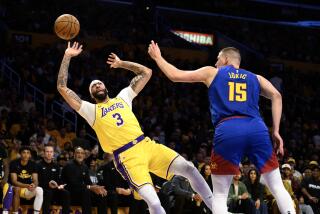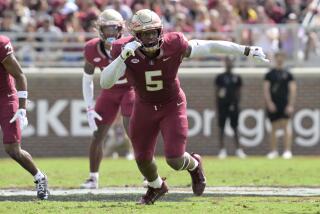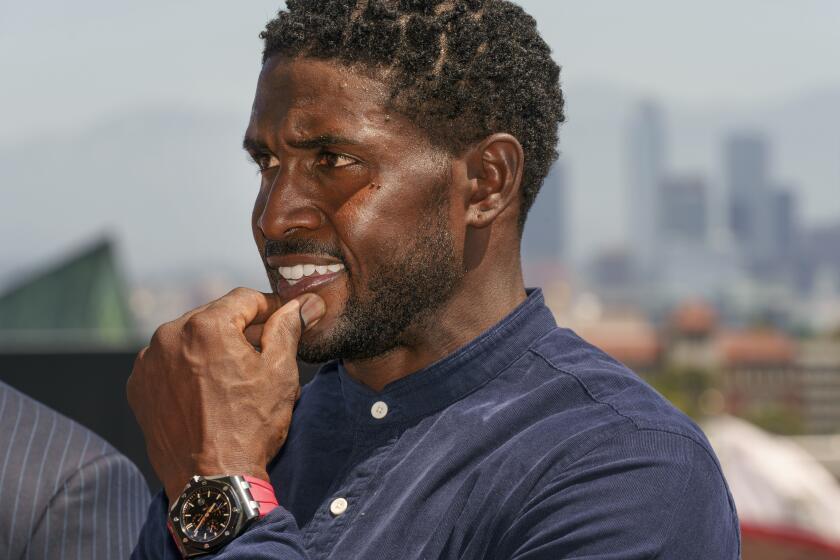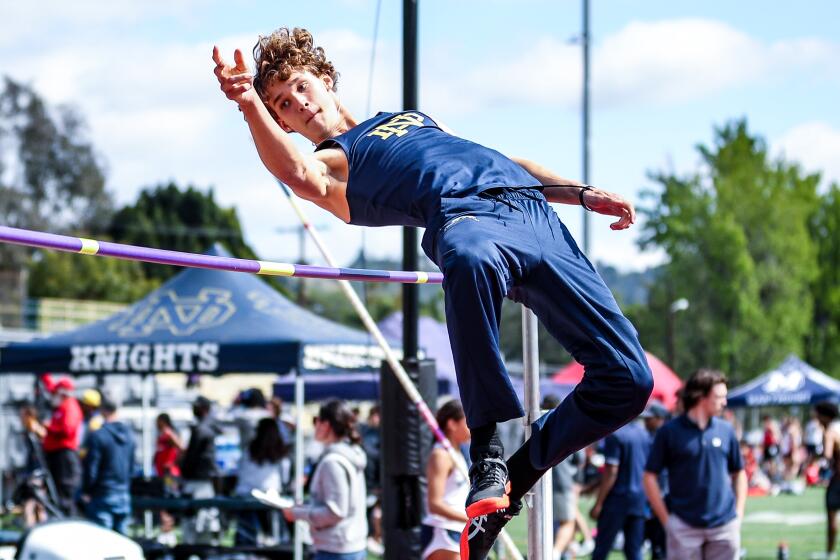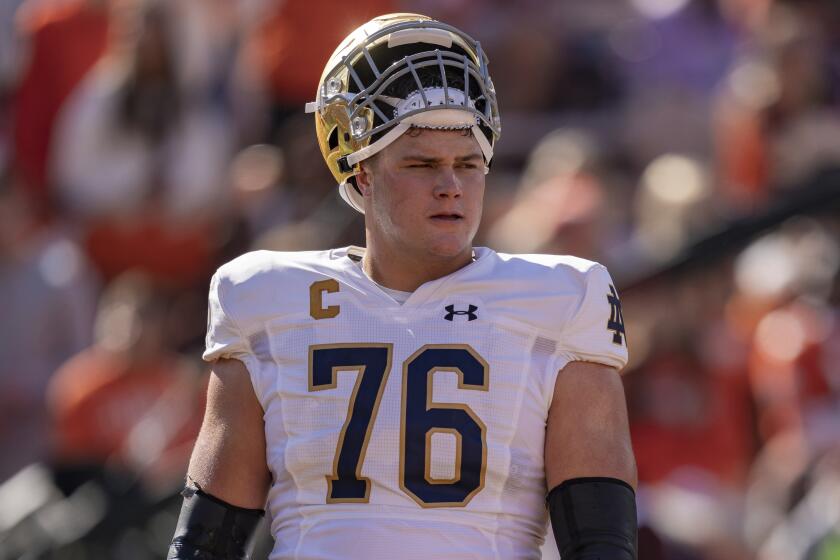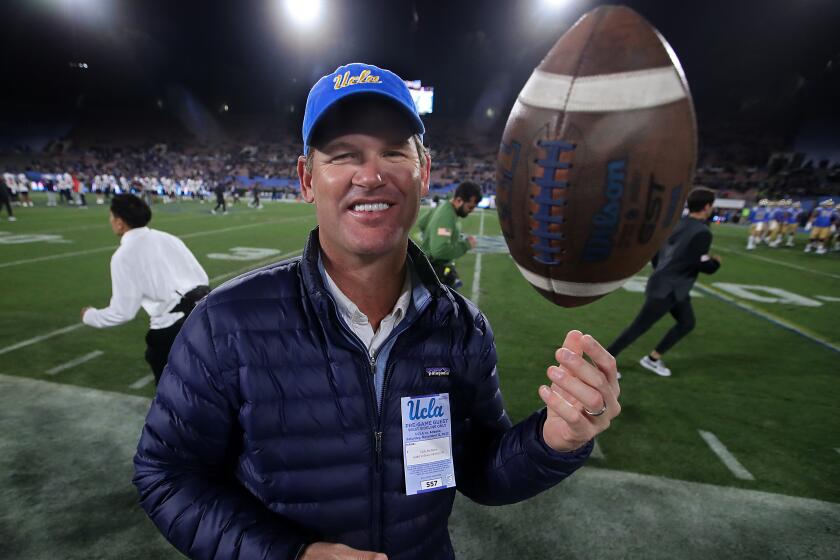Baseball makes pitch to Supreme Court
The Supreme Court justices were spending part of their time last week on fantasy baseball, but not because summer is near and they were bored with the legal work. Rather, the justices were deciding whether to take up a billion-dollar dispute over whether for-profit, fantasy games on the Internet have a free-speech right to use the names and performance statistics of famous athletes.
If the justices vote to hear the appeal from Major League Baseball, the outcome could have a far-reaching impact, including on the entertainment industry. If the justices were to rule that fantasy sports games have a free-speech right to use the names of famous players, it could cast doubt on some licensing deals for celebrities.
Even if the court lets stand the lower court’s ruling in favor of free speech for the for-profit websites, it could encourage other websites to incorporate the use of famous people without seeking their permission.
It has been decades since the high court last weighed a clash between the “right to publicity” and the right to free speech. And since then, the Internet has made it far easier for others to make money by using the names, faces and images of celebrities.
For now, however, the question is whether baseball players and their statistics are public knowledge, and thus free to be used by all, or whether they remain the private property of Major League Baseball.
Fantasy baseball began a quarter of a century ago as a game among friends. As an “owner” or “manager,” a participant selected his team of players from the major league rosters and watched daily box scores to see how those players did in reality.
By the mid-1990s, however, fantasy sports had become an industry on the Web. An estimated 15 million people spend about $1.5 billion a year playing fantasy sports. Web-based companies charge $30 or more to join a fantasy league, and some games offer big cash prizes to the winners.
The legal dispute arose four years ago when Major League Baseball Advanced Media, which represents the players and owners, signed licensing deals for fantasy games with a few big companies, including Yahoo, ESPN, Fox Sports and CBS Sportsline. At the same time, Major League Baseball ended earlier deals with dozens of leagues, games and websites that had offered fantasy games.
One of the jilted providers, C.B.C. Distribution and Marketing in St. Louis, went to court and last year won a double-header victory in the U.S. Court of Appeals there. The judges ruled that the fantasy game provider had a 1st Amendment right to use the names and statistics of major league players, and it was free to ignore the earlier licensing deal.
If that ruling stands, it could disrupt “billions of dollars” of licensing deals in pro-sports, lawyers for Major League Baseball said in their appeal to the Supreme Court. “Celebrities and athletes have enforceable publicity rights,” they argued, and the 1st Amendment has never been understood to give other companies a right “to exploit players’ identities for commercial gain.”
A lawyer for the St. Louis-based fantasy league countered that baseball and its daily box scores were available to the public. “The mere dissemination of facts or statistics is protected. And all our clients are doing is disseminating the same information that newspapers put in the sports pages every day,” said Rudolph Telscher, a lawyer who won the ruling in St. Louis.
Not so, replies Major Baseball League. The dispute involves famous names, not mere statistics, the league argues. Though the names of players such as Albert Pujols or Derek Jeter may be published or broadcast every day, “those names may not be incorporated without the famous persons’ consent primarily for commercial purposes into a product -- be it a coffee mug, a poster, a board game or an Internet game -- without consent,” the league said.
Neither side can point to a Supreme Court precedent that resolves the matter. The justices last ruled in a right-to-publicity dispute more than 30 years ago in the case of the Human Cannonball.
Hugo Zacchini made his living being fired from a cannon and landing in a net 200 feet away. He sued a TV station in Ohio that had taped his entire 15-second performance at a county fair and ran it on the evening news. In Zacchini vs. Scripps-Howard Broadcasting, the Supreme Court ruled in favor of Zacchini in 1977 and said the 1st Amendment did not give others a right to make use of a performer’s entire act.
But the 5-4 opinion did not say how judges were to decide future disputes between the publicity rights of performers and the public’s right to use public information. For that reason, some lawyers say there is a good chance the court will agree to hear the dispute between Major League Baseball and the fantasy leagues.
The courts in California have developed the strongest legal protection for famous performers and the “right to publicity.” In a series of rulings, this right has been extended to protect a performer’s image or likeness, not just his or her actual name or face.
In one oft-cited ruling, TV game show hostess Vanna White sued and won $403,000 in damages from Samsung Electronics over an ad that featured a futuristic robot in a blond wig turning letters on a game show.
Singers Bette Midler and gravel-voiced Tom Waits also used the law to stop commercials that used distinctive voices that resembled theirs.
Later, actors George Wendt and John Ratzenberger, who had played chubby Norm and postman Cliff on the 1980s TV series “Cheers,” sued to stop Paramount from licensing the use of two similar-looking characters to be used in airport bars. Paramount settled the case after an eight-year dispute.
Lawyers for Major League Baseball cited many of these California cases in their appeal to the Supreme Court. Nearly all of them came from the U.S. 9th Circuit Court of Appeals, which some law professors have called “the Hollywood circuit.”
Courts in other regions, including the U.S. 8th Circuit Court in St. Louis and the 2nd Circuit in New York, have been less friendly to the rights of performers and more inclined to rule for free speech.
The Supreme Court has passed up several chances before to resolve this divide. Baseball lawyers hope that this time the court will affirm that marketers cannot make use of famous names without their permission.
The court is likely to announce Monday whether it will hear the appeal.
--
More to Read
Get our high school sports newsletter
Prep Rally is devoted to the SoCal high school sports experience, bringing you scores, stories and a behind-the-scenes look at what makes prep sports so popular.
You may occasionally receive promotional content from the Los Angeles Times.
